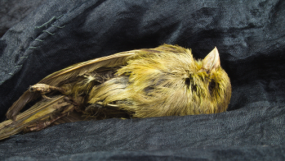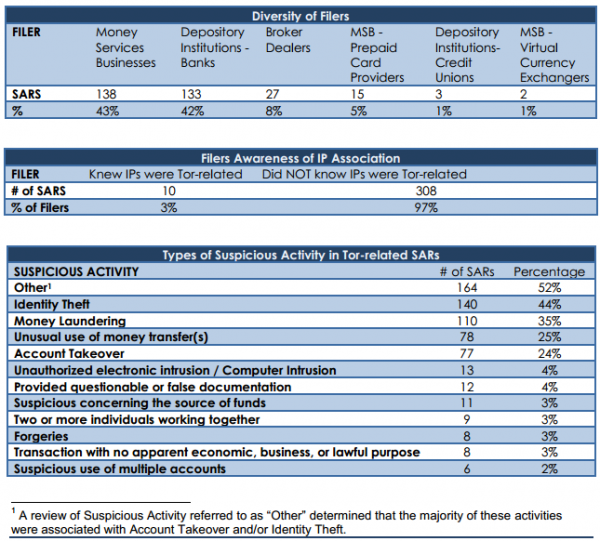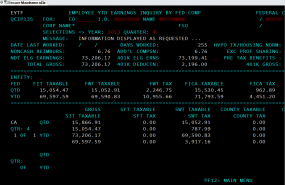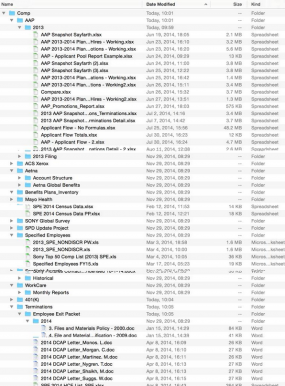When a retailer’s credit card systems get breached by hackers, banks usually can tell which merchant got hacked soon after those card accounts become available for purchase at underground cybercrime shops. But when companies that collect and sell sensitive consumer data get hacked or are tricked into giving that information to identity thieves, there is no easy way to tell who leaked the data when it ends up for sale in the black market. In this post, we’ll examine one idea to hold consumer data brokers more accountable.
 Some of the biggest retail credit card breaches of the past year — including the break-ins at Target and Home Depot — were detected by banks well before news of the incidents went public. When cards stolen from those merchants go up for sale on underground cybercrime shops, the banks often can figure out which merchant got hacked by acquiring a handful of their cards and analyzing the customer purchase history of those accounts. The merchant that is common to all stolen cards across a given transaction period is usually the breached retailer.
Some of the biggest retail credit card breaches of the past year — including the break-ins at Target and Home Depot — were detected by banks well before news of the incidents went public. When cards stolen from those merchants go up for sale on underground cybercrime shops, the banks often can figure out which merchant got hacked by acquiring a handful of their cards and analyzing the customer purchase history of those accounts. The merchant that is common to all stolen cards across a given transaction period is usually the breached retailer.
Sadly, this process of working backwards from stolen data to breach victim generally does not work in the case of breached data brokers that trade in Social Security information and other data, because too often there are no unique markers in the consumer data that would indicate from where the information was obtained.
Even in the handful of cases where underground crime shops selling consumer personal data have included data points in the records they sell that would permit that source analysis, it has taken years’ worth of very imaginative investigation by law enforcement to determine which data brokers were at fault. In Nov. 2011, I wrote about an identity theft service called Superget[dot]info, noting that “each purchasable record contains a two- to three-letter “sourceid,” which may provide clues as to the source of this identity information.”
Unfortunately, the world didn’t learn the source of that ID theft service’s data until 2013, a year after U.S. Secret Service agents arrested the site’s proprietor — a 24-year-old from Vietnam who was posing as a private investigator based in the United States. Only then were investigators able to determine that the source ID data matched information being sold by a subsidiary of big-three credit bureau Experian (among other data brokers that were selling to the ID theft service). But federal agents made that connection only after an elaborate investigation that lured the proprietor of that shop out of Vietnam and into a U.S. territory.
Meanwhile, during the more than six years that this service was in operation, Superget.info attracted more than 1,300 customers who paid at least $1.9 million to look up Social Security numbers, dates of birth, addresses, previous addresses, email addresses and other sensitive information on consumers, much of it used for new account fraud and tax return fraud.
Investigators got a lucky break in determining the source of another ID theft service that was busted up and has since changed its name (more on that in a moment). That service — known as “ssndob[dot]ru” — was the service used by exposed[dot]su, a site that proudly displayed the Social Security, date of birth, address history and other information on dozens of Hollywood celebrities, as well as public officials such as First Lady Michelle Obama, then FBI Director Robert Mueller, and CIA Director John Brennan.
As I explained in a 2013 exclusive, civilian fraud investigators working with law enforcement gained access to the back-end server that was being used to handle customer requests for consumer information. That database showed that the site’s 1,300 customers had spent hundreds of thousands of dollars looking up SSNs, birthdays, drivers license records, and obtaining unauthorized credit and background reports on more than four million Americans.
Although four million consumer records may seem like a big number, that figure did not represent the total number of consumer records available through ssndob[dot]ru. Rather, four million was merely the number of consumer records that the service’s customers had paid the service to look up. In short, it appeared that the ID theft service was drawing on active customer accounts inside of major consumer data brokers.
Investigators working on that case later determined that the same crooks who were running ssndob[dot]ru also were operating a small, custom botnet of hacked computers inside of several major data brokers, including LexisNexis, Dun & Bradstreet, and Kroll. All three companies acknowledged infections from the botnet, but shared little else about the incidents.
Despite their apparent role in facilitating (albeit unknowingly) these ID theft services, to my knowledge the data brokers involved have never been held publicly accountable in any court of law or by Congress.
CURRENT ID THEFT SERVICES
At present, there are multiple shops in the cybercrime underground that sell everything one would need to steal someone’s identity in the United States or apply for new lines of credit in their name — including Social Security numbers, addresses, previous addresses, phone numbers, dates of birth, and in some cases full credit history. The price of this information is shockingly low — about $3 to $5 per record.
KrebsOnSecurity conducted an exhaustive review of consumer data on sale at some of the most popular underground cybercrime sites. The results show that personal information on some of the most powerful Americans remains available for just a few dollars. And of course, if one can purchase this information on these folks, one can buy it on just about anyone in the United States today.
As an experiment, this author checked two of the most popular ID theft services in the underground for the availability of Social Security numbers, phone numbers, addresses and previous addresses on all members of the Senate Commerce Committee‘s Subcommittee on Consumer Protection, Product Safety and Insurance. That data is currently on sale for all thirteen Democrat and Republican lawmakers on the panel.
Between these two ID theft services, the same personal information was for sale on Edith Ramirez and Richard Cordray, the heads of the Federal Trade Commission (FTC) and the Consumer Financial Protection Bureau (CFPB), respectively. Continue reading →
 Four of the seven updates from Microsoft earned a “critical” rating, which means the patches on fix vulnerabilities that can be exploited by malware or attackers to seize control over vulnerable systems without any help from users (save for perhaps visiting a hacked or malicious Web site). One of those critical patches — for Internet Explorer — plugs at least 14 holes in the default Windows browser.
Four of the seven updates from Microsoft earned a “critical” rating, which means the patches on fix vulnerabilities that can be exploited by malware or attackers to seize control over vulnerable systems without any help from users (save for perhaps visiting a hacked or malicious Web site). One of those critical patches — for Internet Explorer — plugs at least 14 holes in the default Windows browser.








![The card fraud shop "goodshop[dot]bz" is selling thousands of cards in its "Happy Winter Update."](https://krebsonsecurity.com/wp-content/uploads/2014/12/goodshophappywinter-600x356.png)





